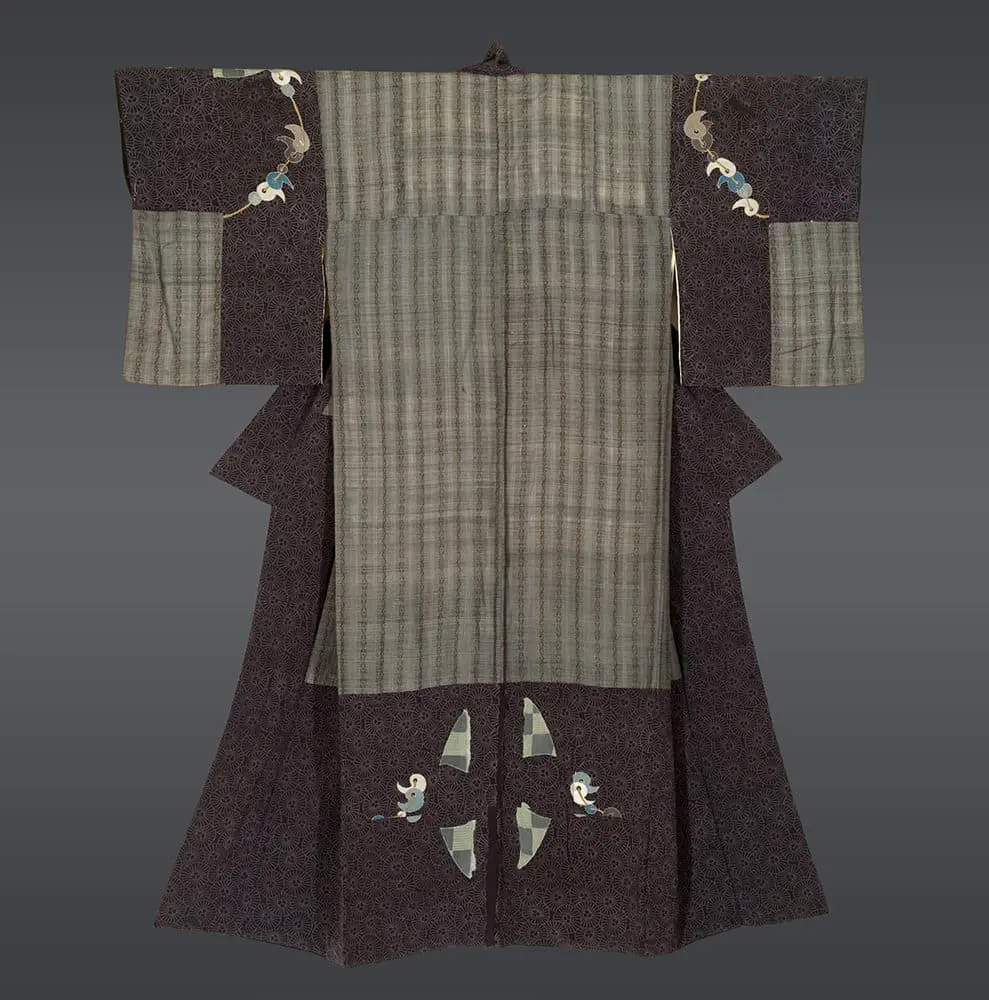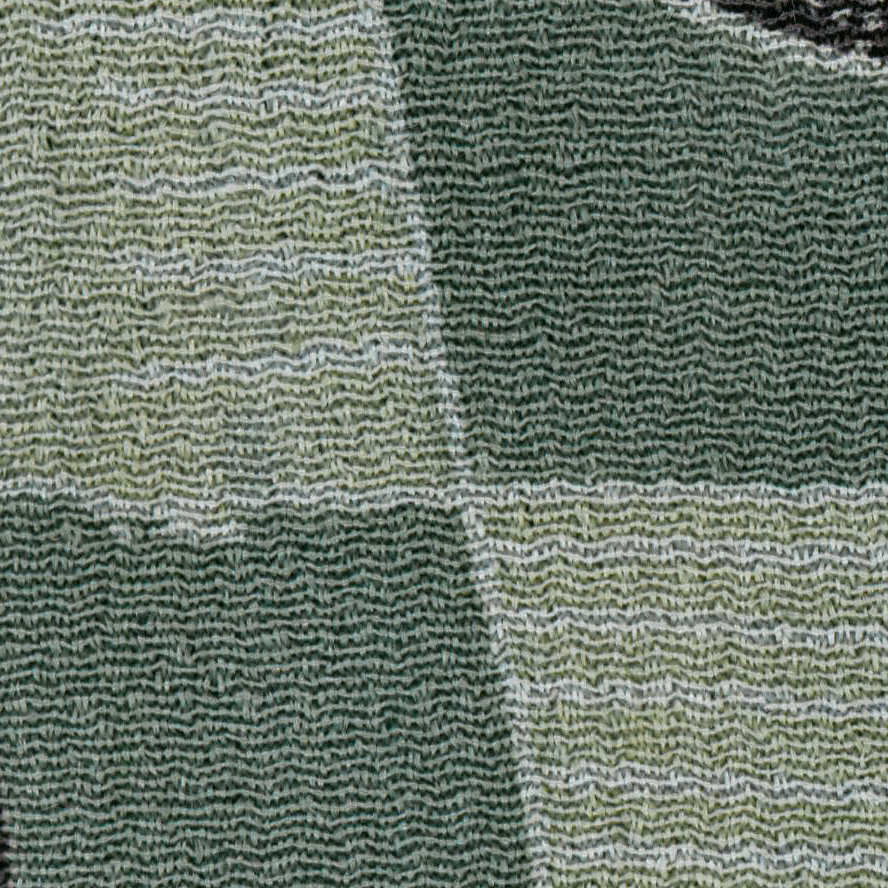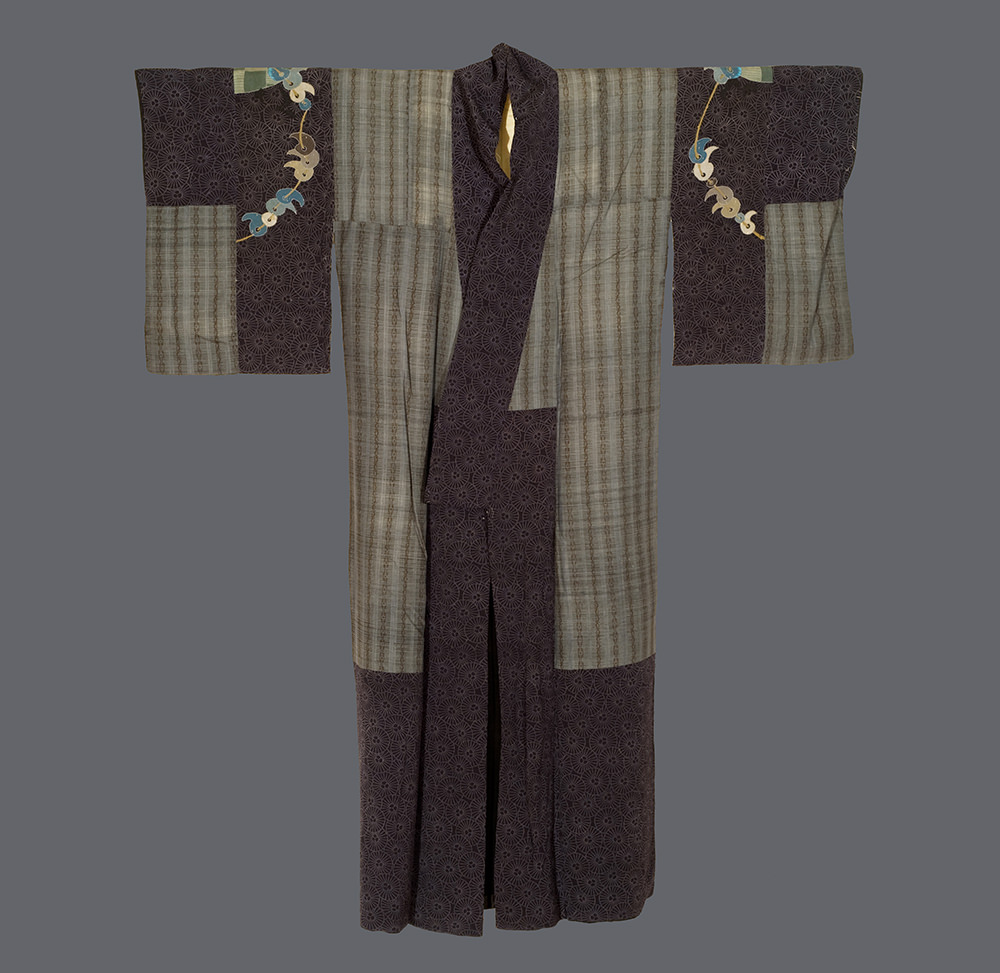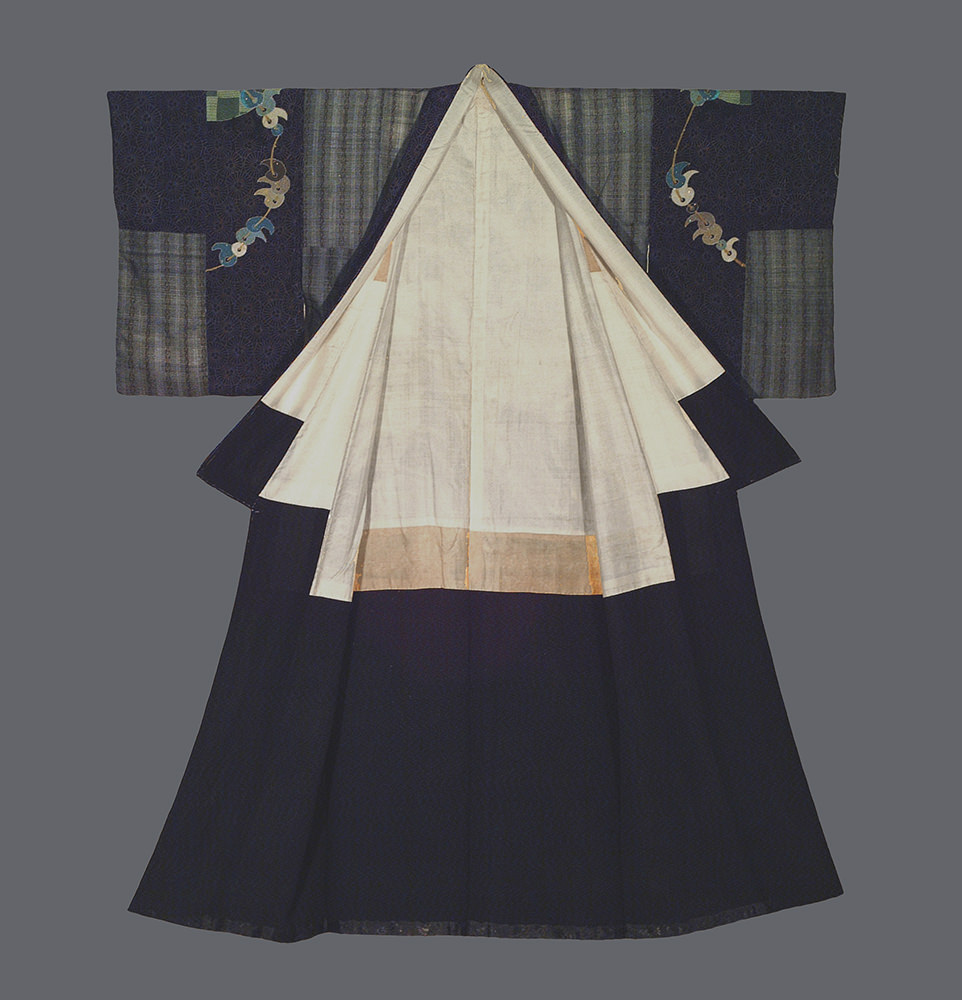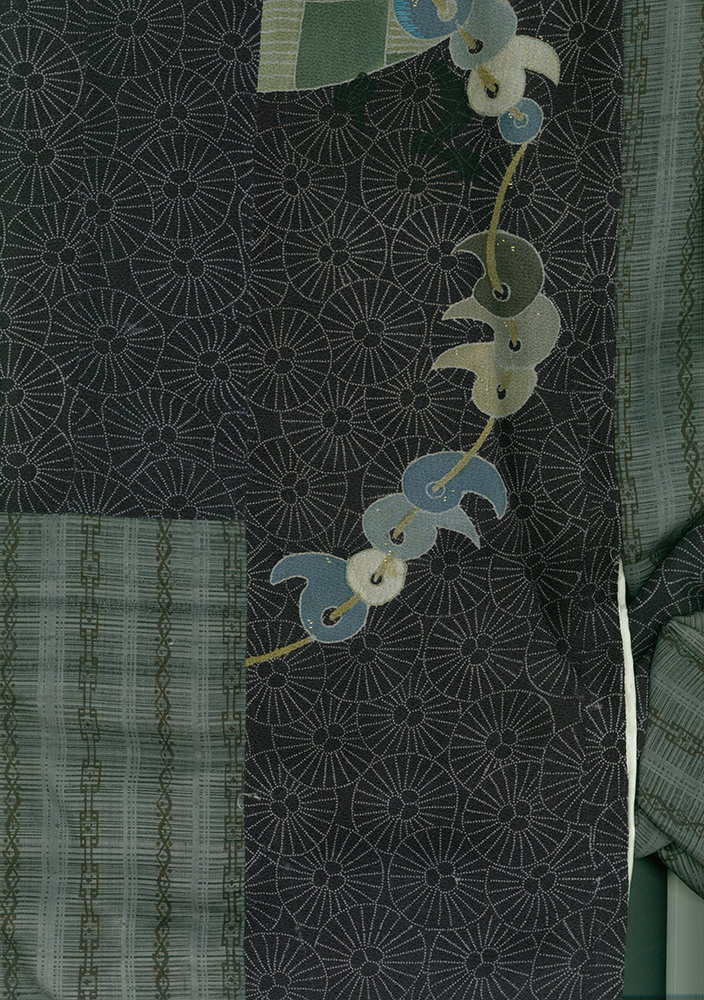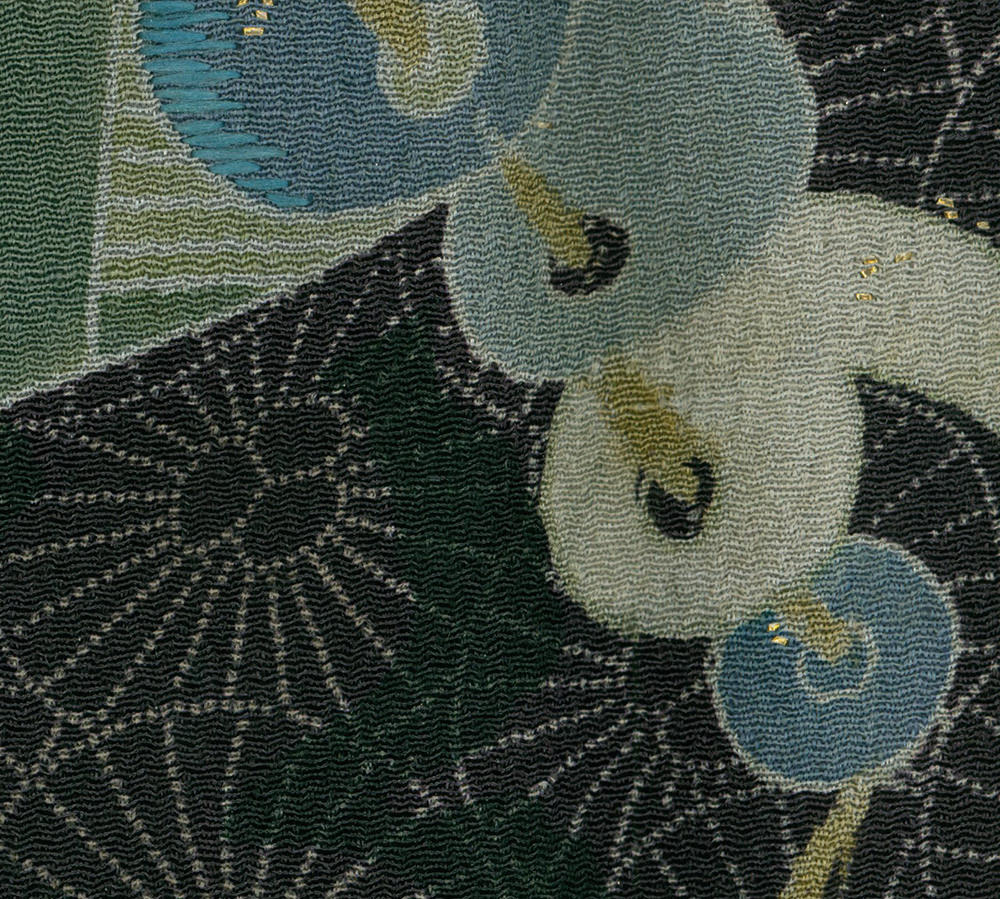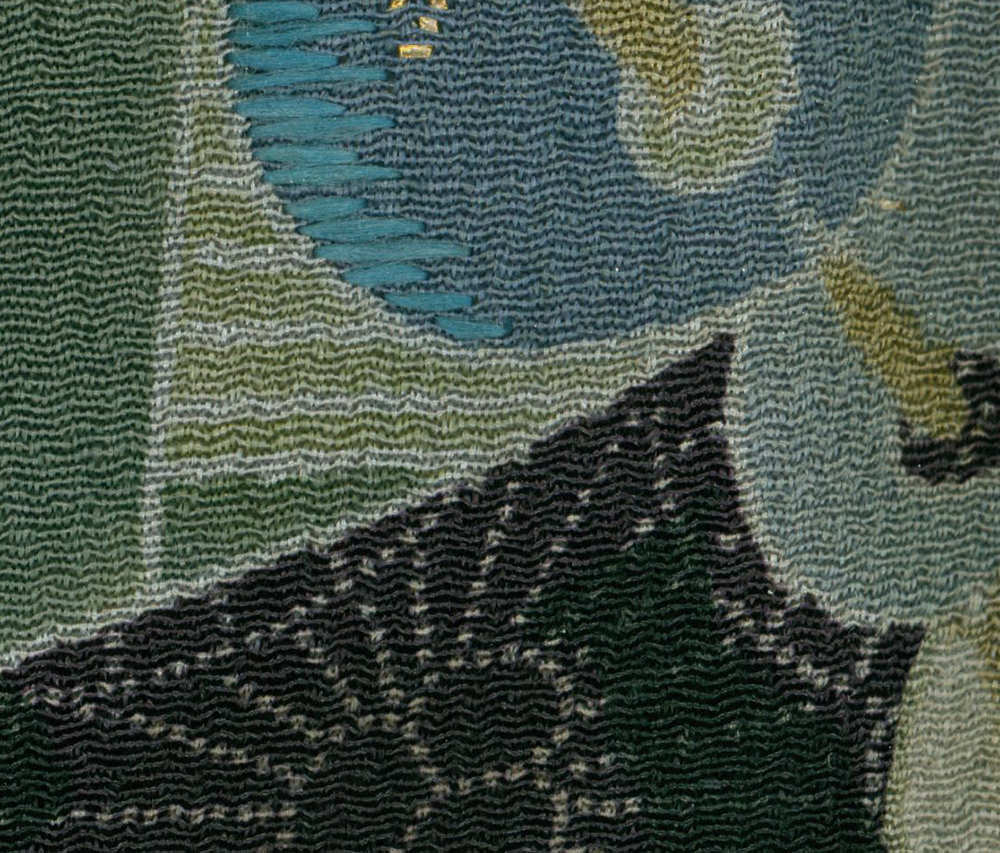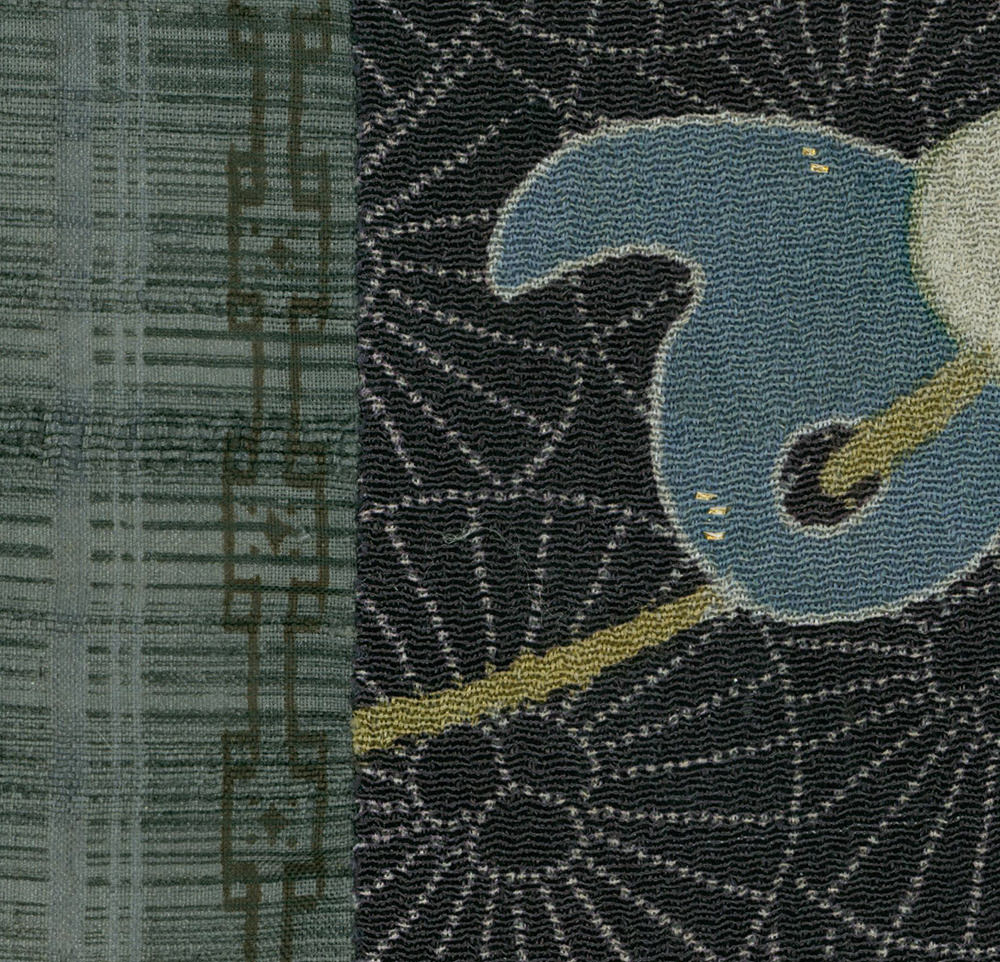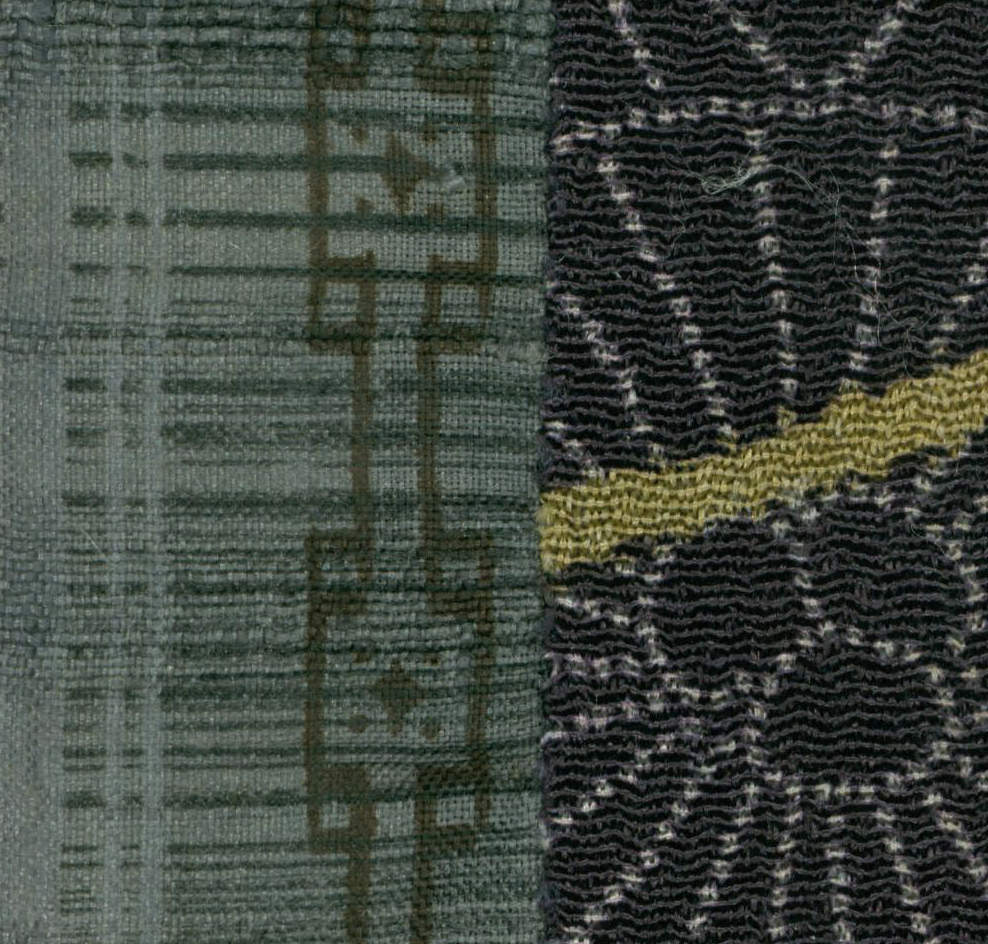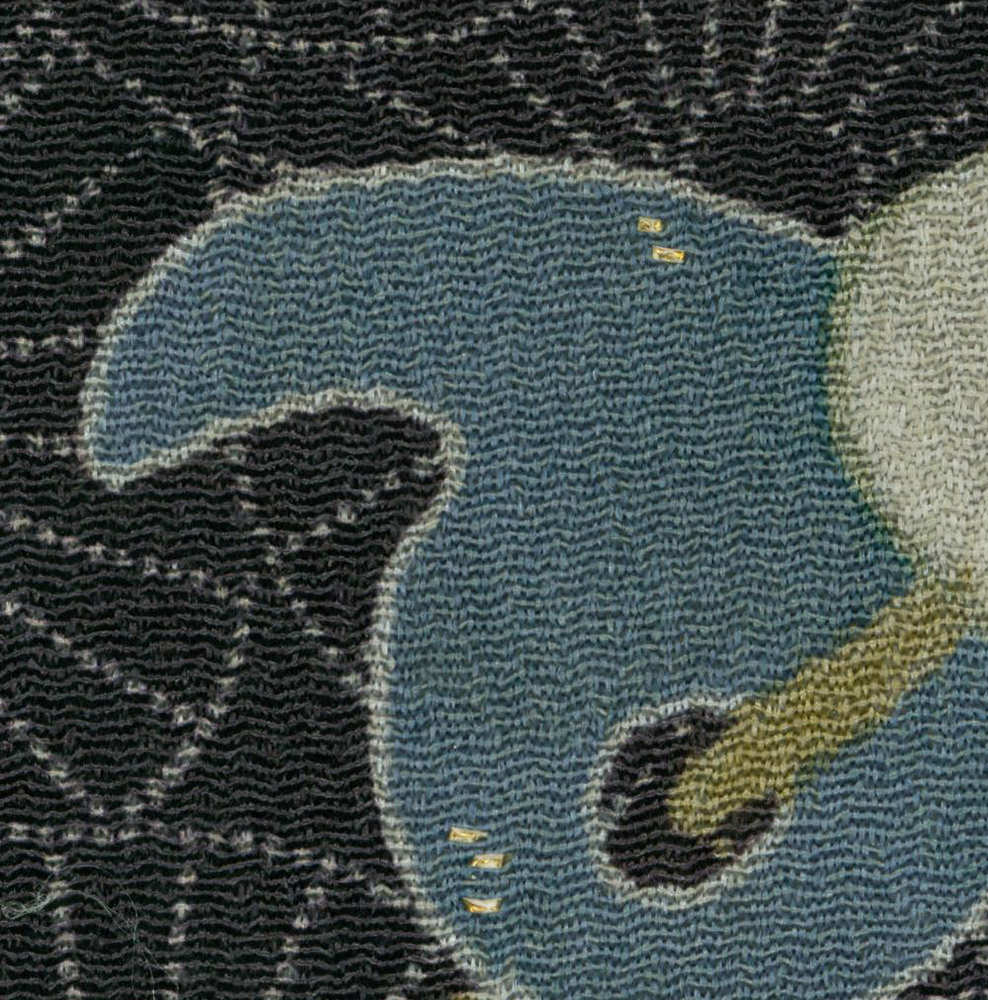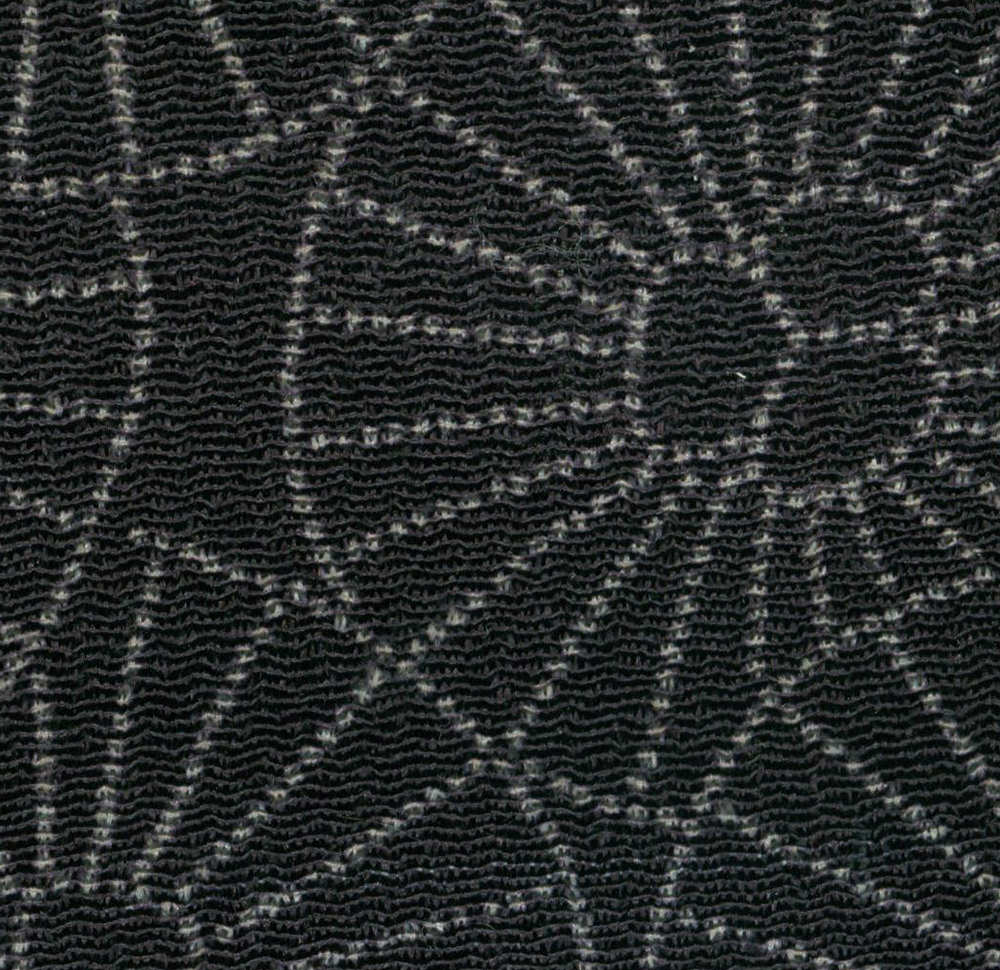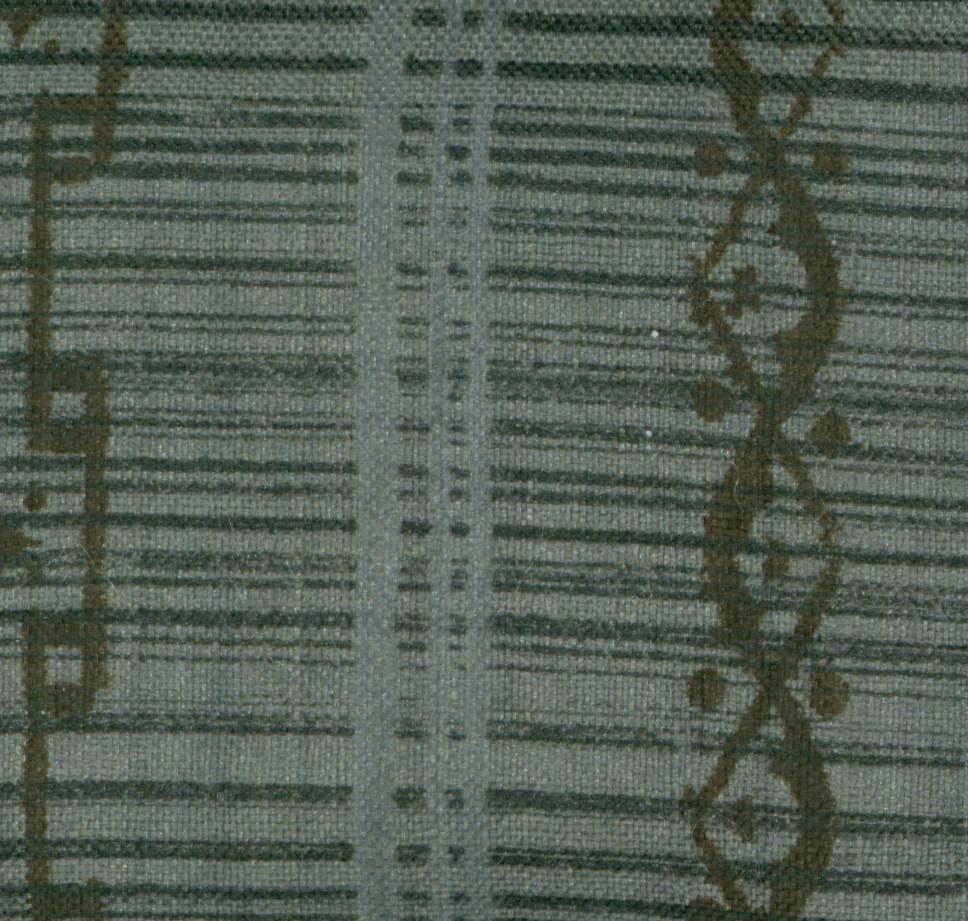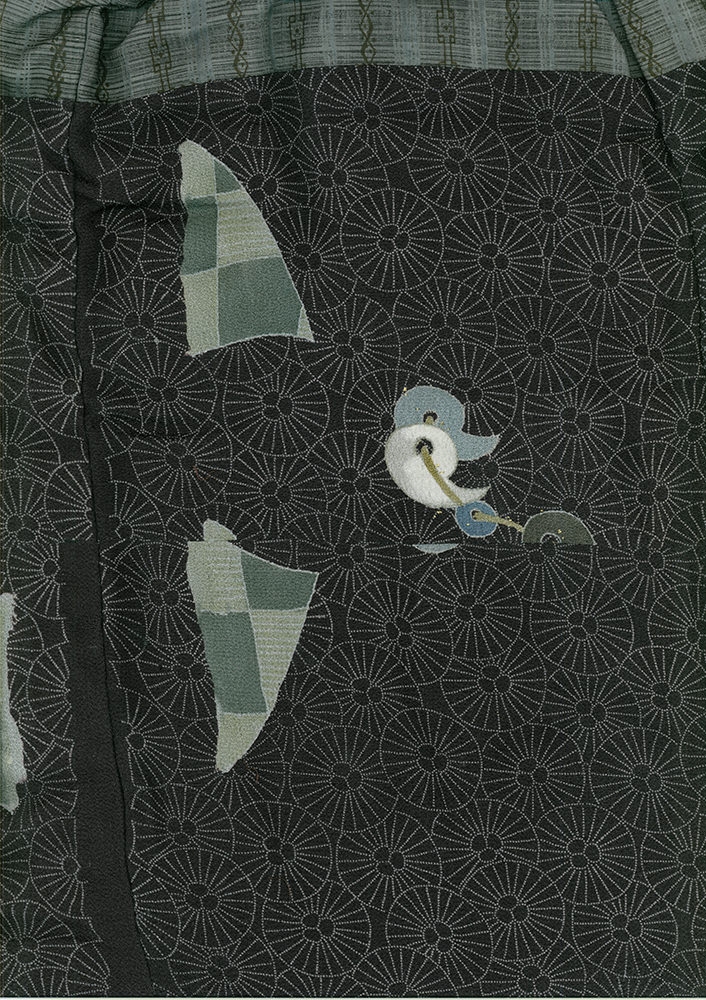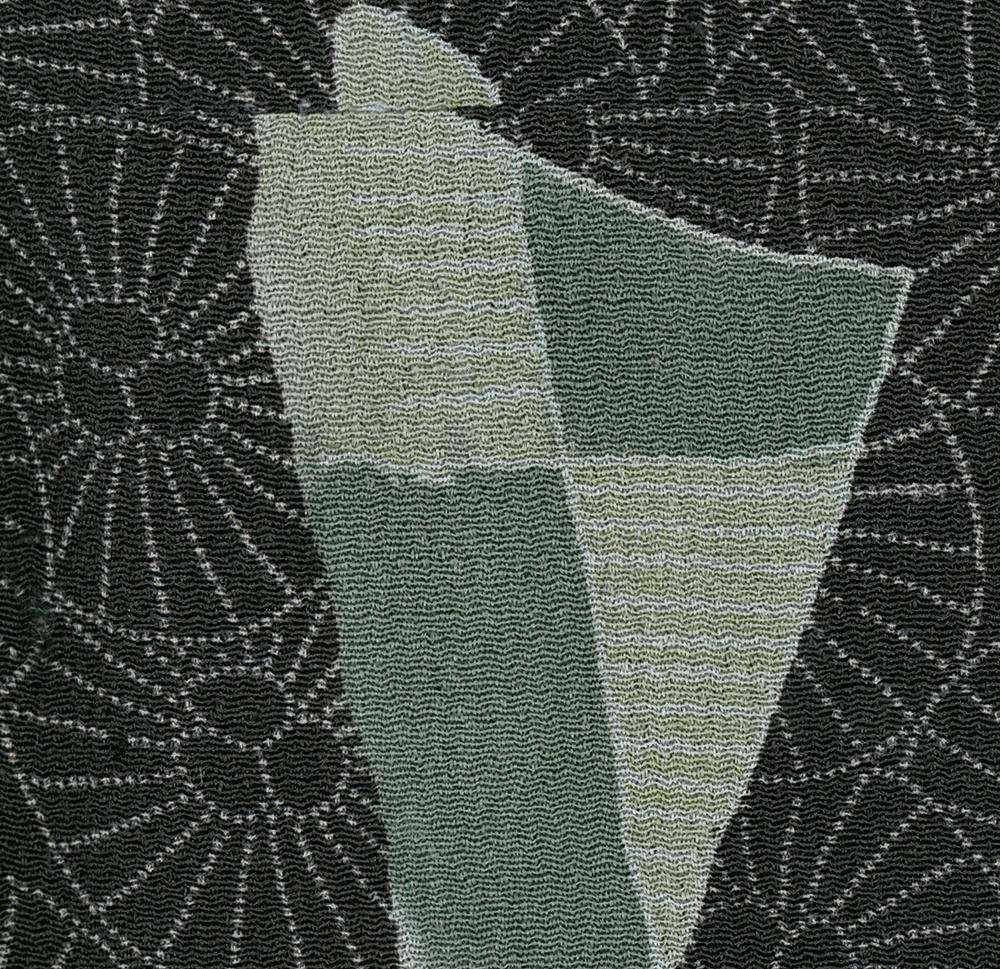This chirimen silk dounuki represents a sophisticated example of Japanese textile artistry that bridges traditional symbolism with the refined aesthetic sensibilities of the late Edo period. The garment features a striking compositional arrangement where vertical striped panels in muted earth tones create a geometric framework, contrasted against darker sections decorated with scattered magatama motifs rendered in the yuzen painting technique. The magatama, those distinctive comma-shaped jewels that appear as stylized curved forms in white and pale blue, carry profound spiritual significance in Japanese culture as one of the three imperial regalia, symbolizing benevolence and the soul's connection to the divine.
The artistic execution demonstrates the sophisticated interplay between restraint and ornamentation characteristic of Japanese design philosophy. The sparse application of metallic and silk embroidery highlights suggests an approach that values subtlety over ostentation, allowing the painted yuzen work to dominate while the embroidered elements provide textural accents that catch light delicately. This aesthetic sensibility aligns with the wabi-sabi appreciation for understated beauty and the Japanese concept of ma (negative space), where what is left undecorated becomes as important as the decorated areas. The overall composition, with its careful balance of pattern and plain areas, geometric structure and organic motifs, reflects the mature artistic vocabulary of mid-19th century Japan.
Measurements: 48 inches (122 cm) from sleeve-end to sleeve-end and standing at 56 inches (142 cm) in height.
.avif)

